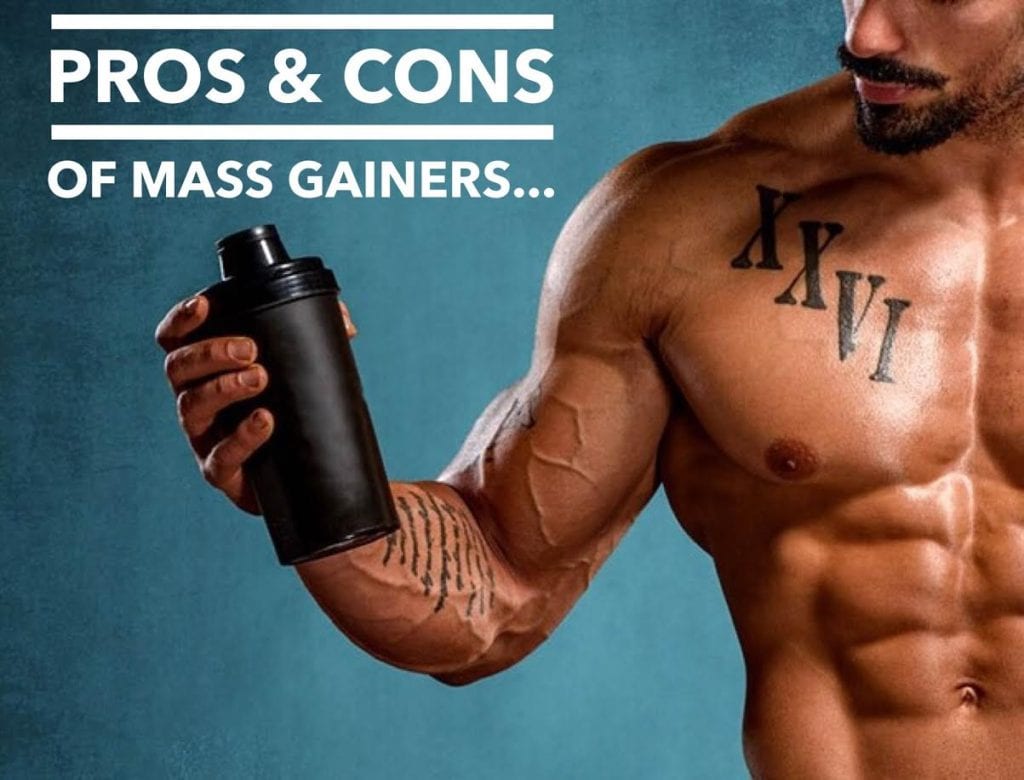Achieving weight gain and muscle mass can be a challenging journey, but with the right strategies and dedication, anyone can transform their physique. Whether you're a beginner or an experienced fitness enthusiast, this comprehensive guide will provide you with the necessary information to embark on your weight and muscle gain journey effectively and safely.
 |
Section 1: Understanding Weight and Muscle Gain
1.1 The Importance of Weight and Muscle Gain: Weight and muscle gain are essential for various reasons. Increasing your body weight with lean muscle mass can improve overall strength, enhance athletic performance, boost metabolism, and contribute to an aesthetically pleasing physique. Additionally, building muscle mass can provide long-term health benefits, including improved bone density and increased insulin sensitivity.
1.2 Differentiating Between Weight Gain and Muscle Gain: It's crucial to understand the difference between weight gain and muscle gain. While weight gain refers to an increase in overall body weight, muscle gain specifically targets the growth and development of lean muscle tissue. Striving for muscle gain rather than mere weight gain ensures that you're building a healthier and more functional body composition.
1.3 The Science Behind Muscle Growth: Muscle growth, scientifically known as muscle hypertrophy, occurs when muscle fibers undergo stress and damage during resistance training. This triggers a series of physiological responses, including increased protein synthesis, which leads to the repair and growth of muscle fibers. Proper nutrition, rest, and progressive overload are key factors in optimizing muscle growth.
Section 2: Nutrition for Weight and Muscle Gain
2.1 Calorie Surplus and Macronutrient Ratios: To promote weight and muscle gain, you need to consume a calorie surplus, which means consuming more calories than your body burns. Calculate your daily calorie needs using an online calculator and aim to consume approximately 250-500 calories above that number. Focus on a well-balanced diet that includes all three macronutrients: protein, carbohydrates, and fats.
2.2 Protein: The Building Block of Muscle: Protein is crucial for muscle growth as it provides the necessary amino acids for protein synthesis. Consume high-quality protein sources such as lean meats, poultry, fish, eggs, dairy products, legumes, and plant-based protein sources like tofu and tempeh. Aim for a protein intake of around 0.7-1 gram per pound of body weight per day.
2.3 Carbohydrates: Fueling Your Workouts: Carbohydrates provide energy for intense workouts and replenish glycogen stores in muscles. Include complex carbohydrates such as whole grains, fruits, and vegetables in your diet. They provide sustained energy and essential nutrients for optimal performance during training.
2.4 Fats: Essential for Hormone Production: Don't neglect dietary fats, as they play a crucial role in hormone production and overall health. Include healthy fat sources like avocados, nuts, seeds, olive oil, and fatty fish in your diet. These fats provide essential fatty acids and support hormone balance.
2.5 Micronutrients and Hydration: Ensure your diet includes a variety of vitamins and minerals through a colorful array of fruits and vegetables. Additionally, staying hydrated is vital for muscle function, digestion, and overall well-being. Drink plenty of water throughout the day, especially during workouts.
Section 3: Designing an Effective Workout Routine
3.1 Resistance Training: The Key to Muscle Growth: Resistance training is the foundation for muscle growth. Focus on compound exercises that engage multiple muscle groups simultaneously, such as squats, deadlifts, bench presses, shoulder presses, and rows. These exercises stimulate maximum muscle recruitment and promote overall strength development.
3.2 Compound Exercises vs. Isolation Exercises: While compound exercises should form the core of your workout routine, isolation exercises can be used to target specific muscles or address any muscular imbalances. Incorporate exercises like bicep curls, tricep extensions, and calf raises to supplement your compound movements.
3.3 Creating a Workout Split: Design a well-structured workout split that allows for sufficient recovery while targeting different muscle groups throughout the week. Common splits include full body workouts, upper/lower body splits, or muscle group-specific splits. Aim for 3-4 strength training sessions per week, allowing at least 48 hours of rest between training each muscle group.
3.4 Progressive Overload: The Secret to Constant Growth: To continually challenge your muscles and promote growth, progressively overload your workouts. Increase the weight, number of sets and reps, or decrease rest periods over time. This gradual increase in intensity forces your muscles to adapt and grow stronger.
3.5 Rest and Recovery: The Importance of Active Rest Days: Allow your body to recover and repair itself after intense workouts. Rest days are crucial for muscle growth as they allow your muscles to rebuild and strengthen. Incorporate active rest days with activities like light stretching, yoga, or low-intensity cardio to promote blood flow and aid in recovery.
Section 4: Supplementation for Weight and Muscle Gain
4.1 Understanding the Role of Supplements: While not essential, supplements can complement your nutrition and training efforts. They should not replace a well-balanced diet but can provide convenience and additional support.
4.2 Protein Powders and Meal Replacements: Protein powders, such as whey protein or plant-based protein, can be convenient options to increase protein intake. Meal replacement shakes can also be beneficial when struggling to meet caloric needs.
4.3 Creatine: Enhancing Performance and Muscle Growth: Creatine is a popular supplement that can enhance high-intensity exercise performance and promote muscle growth. It increases phosphocreatine stores in the muscles, allowing for more energy production during intense workouts.
4.4 Branched-Chain Amino Acids (BCAAs) for Recovery: BCAAs, consisting of essential amino acids leucine, isoleucine, and valine, can support muscle recovery and reduce muscle soreness. They can be consumed during or after workouts to aid in muscle repair.
4.5 Pre-Workout Supplements and Other Ergogenics: Pre-workout supplements, such as caffeine or nitric oxide boosters, can provide a temporary energy and focus boost. Other ergogenic aids like beta-alanine or citrulline malate may also enhance performance during intense training sessions.
Section 5: Lifestyle Factors and Additional Considerations
5.1 Sleep: The Unsung Hero of Muscle Growth: Adequate sleep is essential for muscle recovery and growth. Aim for 7-9 hours of quality sleep per night to optimize hormonal balance, muscle repair, and overall well-being.
5.2 Stress Management and Cortisol Control: Excessive stress and elevated cortisol levels can hinder muscle growth. Practice stress-management techniques such as meditation, deep breathing exercises, or engaging in hobbies that help you relax and unwind.
5.3 Tracking Progress: Measurements, Photos, and Journals: Monitor your progress by keeping track of your body weight, measurements, and strength gains. Take regular progress photos and maintain a workout journal to assess your progress objectively and make necessary adjustments to your training and nutrition.
5.4 Adapting Your Routine for Specific Goals and Body Types: Tailor your training and nutrition approach to align with your specific goals and body type. Consult with a fitness professional or nutritionist to develop a personalized plan that considers your unique needs and preferences.
5.5 Common Challenges and How to Overcome Them: Understand that the weight and muscle gain journey may come with challenges such as plateaus, lack of motivation, or inconsistent progress. Stay committed, seek support from fitness communities or professionals, and adjust your approach when necessary to overcome these hurdles.
Section 6: Common Challenges in Weight and Muscle Gain
6.1 Plateaus:
Plateaus can occur when your body adapts to your training program or nutrition plan. To overcome plateaus, switch up your training program or increase your calorie intake.
6.2 Injury:
Injuries can derail your progress in weight and muscle gain. To prevent injuries, ensure proper form during exercises and incorporate rest days into your training program.
Here are some pros and cons of weight and muscle gain:
Increased Strength: Weight and muscle gain result in improved strength, allowing you to perform everyday activities more easily and excel in athletic endeavors.
Enhanced Body Composition: Gaining muscle mass improves your body composition by increasing muscle-to-fat ratio, giving you a more toned and defined appearance.
Metabolic Benefits: Building muscle boosts your metabolism, as muscle tissue requires more energy to maintain than fat tissue. This can lead to increased calorie burning even at rest.
Improved Bone Density: Resistance training, a key component of muscle gain, helps strengthen bones and reduce the risk of osteoporosis.
Hormonal Balance: Exercise and proper nutrition for muscle gain can optimize hormone levels, promoting overall well-being and vitality.
Increased Confidence: Achieving weight and muscle gain goals can significantly enhance self-confidence and body image, leading to improved mental well-being.
Cons:
Time and Effort: Building muscle and gaining weight requires consistent dedication and effort. It may take several months or even years to achieve significant results.
Caloric Surplus: To gain weight, you need to consume a calorie surplus, which may be challenging for individuals with smaller appetites or specific dietary restrictions.
Body Fat Gain: While the goal is to gain muscle, it's common to also experience some increase in body fat during the weight gain process. Balancing muscle and fat gain can be a challenge.
Plateaus and Frustration: Progress may not always be linear, and plateaus can occur. This can lead to frustration or a lack of motivation. Overcoming plateaus requires adapting your routine and maintaining consistency.
Potential Injury Risk: Engaging in intense resistance training carries a risk of injury if proper form and technique are not maintained. It's crucial to learn proper exercise technique and gradually increase weights to minimize the risk of injury.
Body Image Pressure: While gaining muscle can improve body image, there can be societal pressure to achieve unrealistic or unhealthy standards. It's important to prioritize health, well-being, and personal goals rather than comparing yourself to others.
conclusion
Embarking on a weight and muscle gain journey requires discipline, consistency, and patience. By implementing the strategies discussed in this guide, you can optimize your nutrition, design an effective workout routine, and make smart supplement choices to accelerate your progress. Remember to listen to your body, adjust your approach when necessary, and consult with professionals if needed.
While the path to weight and muscle gain may have its ups and downs, stay motivated, stay focused, and enjoy the process of transforming your body into a stronger, healthier version of yourself. With dedication and perseverance, you can achieve your weight and muscle gain goals and unlock the incredible potential of your body.
Remember that the journey towards weight and muscle gain is not just about physical changes; it's also about embracing a healthier lifestyle and improving your overall well-being. Celebrate every milestone, no matter how small, and be proud of the progress you make along the way.
So, start your journey today with a clear vision, realistic goals, and a commitment to yourself. Embrace the challenges, stay consistent, and enjoy the transformative process. With each day, you'll be one step closer to a stronger, more muscular, and more confident version of yourself.
Remember, you have the power within you to shape your body and reach your goals. Believe in yourself, work hard, and enjoy the incredible journey of weight and muscle gain. The transformation you will experience goes beyond physical appearance—it will shape your mindset, boost your confidence, and enhance your overall quality of life. Embrace the process, and the rewards will be well worth it.





2 Comments
hii
ReplyDeleteii
Delete